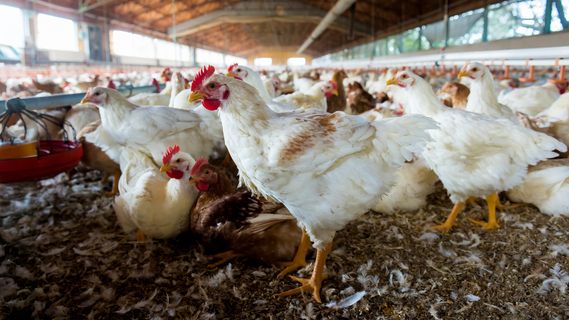Update Bonds: Who’s the chicken now?

The risk premium demanded by European investors for lending money to solid corporations has continued to fall. The average investment-grade corporate spread fell below 80 basis points this week, marking the lowest level since the financial crisis of 2008.
In contrast, yields demanded by investors from European government bonds have resumed their upward trend. This divergence suggests that investors are concerned about rising budget deficits and government debt levels, yet they remain optimistic about corporate growth prospects.
Trade tensions have continued to influence investor sentiment. In early April, US President Donald Trump's aggressive trade war announcement severely shocked investors, but the mood quickly shifted when he paused the trade war for 90 days. During this pause, investors gradually grew more optimistic, expecting Trump to back down — a sentiment encapsulated by the acronym TACO (Trump Always Chickens Out). In July, however, the EU and Japan conceded to accepting 15% tariffs and sketchy investment pledges without any retaliation. This indicates that the rest of the world is now “chickening out," not President Trump. Instead, he is now turning on India with 25% tariffs and still has to strike a deal with China.
Initially, this level of tariffs would have been considered the worst-case scenario by many investors and analysts. However, the reduction in uncertainty now seems to outweigh the anticipated negative impact on growth and inflation. The US economy has shown surprising resilience, casting doubt on the actual impact of tariffs. Although the unexpected weakening of the US dollar should theoretically amplify the effects of tariffs, the fiscal stimulus from Trump's tax reform and the significant reduction in immigration must also be considered.
If the US economy would otherwise have been heading towards excessive growth and insufficient inflation, the current mix of policy measures could even act as corrective medicine, creating a favourable "Goldilocks" environment that markets currently seem to be pricing-in. As long as the economy remains stable, investors might continue to chase this positive sentiment. Caution is advised, however, as narrow risk premiums for bonds leave little room for error.
After their recent meetings, both the European Central Bank and the US Federal Reserve have confirmed their reluctance to rescue investors with lower rates unless growth risks become evident (although two Federal Reserve governors pleased Trump by dissenting from this view). This suggests a need for caution regarding duration risk in bond portfolios. While credit risk may have become less vulnerable in the short term, it has also become extremely expensive. Investors are encouraged to be mindful of these risks in the current economic climate.